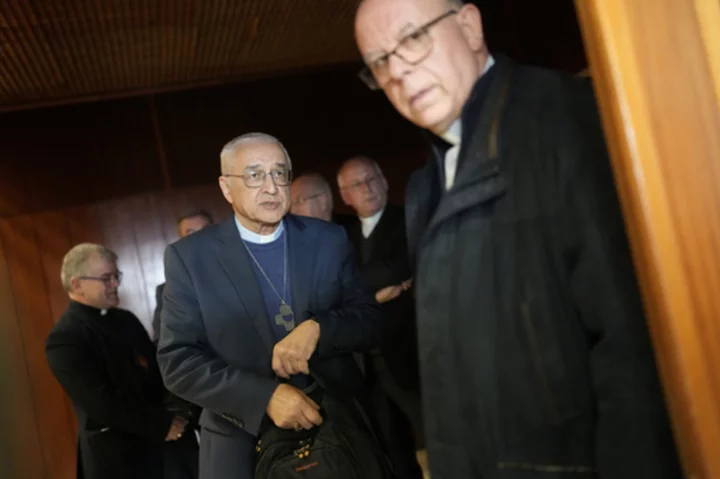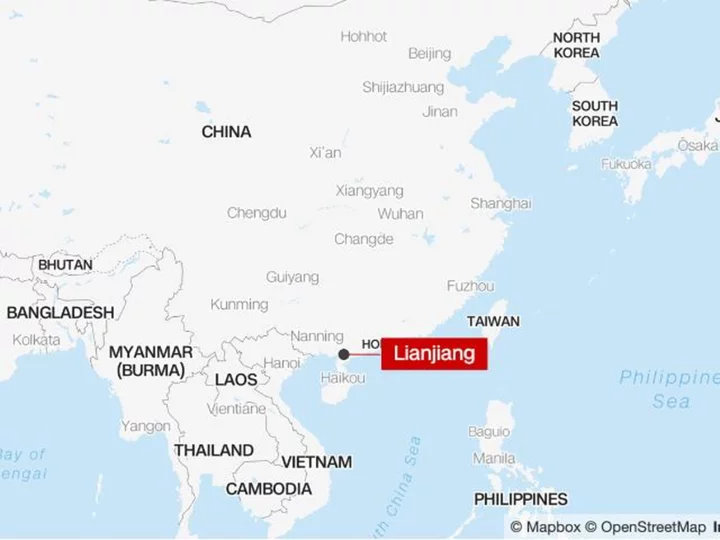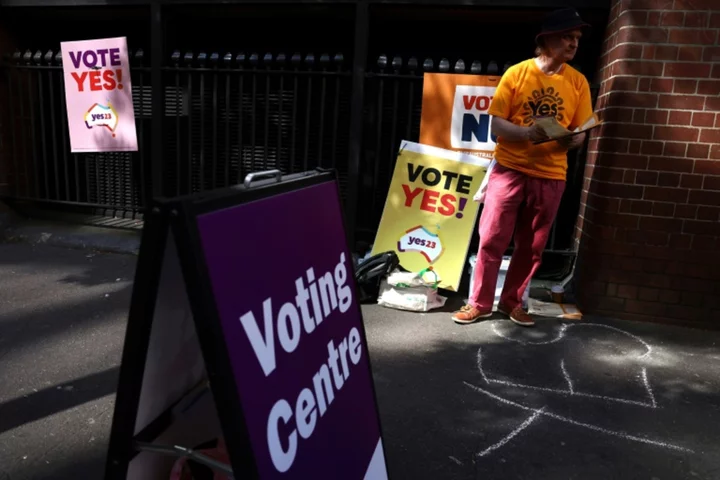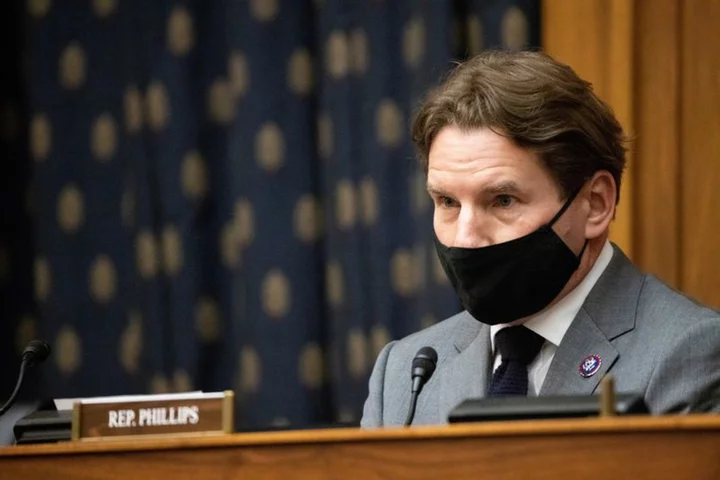VATICAN CITY (AP) — While the Catholic Church in the U.S., Australia and some other countries began coming to terms with their clergy sexual abuse legacies years ago and set up mechanisms to compensate victims, the hierarchy in Portugal has only recently offered an account and bungled its initial response to victims.
Pope Francis will meet with abuse survivors during his upcoming trip to Lisbon for World Youth Day, and will likely hear complaints that the Portuguese hierarchy initially refused to entertain compensation options for victims outside court.
Here’s a look at the countries that have articulated plans for providing financial reparations to victims beyond legal judgments or settlements.
GERMANYThe German church has been making voluntary payments to abuse survivors for over a decade, though the amounts offered haven’t satisfied groups representing victims. A system that took effect in 2021 provided for payments of up to 50,000 euros ($55.400) per victim — replacing a previous program under which payments averaged about 5,000 euros.
Pressure for higher payments was increased by a court’s ruling in mid-June that the Cologne archdiocese must pay 300,000 euros in compensation to a former altar boy who was repeatedly abused by a priest in the 1970s. An independent payment-setting body that decides on claims subsequently said it expects the Cologne ruling, if it stands at the end of the legal process, to have an “influence on the financial payment framework” for its own decisions.
Under the church program, abuse survivors are advised to contact independent commissioners for individual dioceses or orders, who can help them fill out an application form which they then forward to the decision-making body that sets the payments. According to the commission’s annual report for last year, it approved 1,809 applications with a total value of 40.1 million euros in 2021 and 2022. Taking into account deductions for previous payments, that meant a total payout of 32.9 million euros.
The system allows for payments of above 50,000 euros in “particularly severe hardship cases.” In its first two years, the commission set 119 payments of between 50,000 and 100,000 euros, and 24 of more than 100,000 euros. Survivors can file objections to the panel’s decisions.
A church-commissioned report in 2018 concluded that at least 3,677 people were abused by clergy in Germany between 1946 and 2014.
FRANCEThe French bishops conference created an independent body to assess claims for reparations to victims after a church-commissioned report in 2021 estimated that some 330,000 children in France had been sexually abused by church personnel over 70 years. The bishops conference launched a solidarity fund to help pay the compensation, which in 2022 reported it had raised 20 million euros.
The independent review body, known as the Independent National Authority for Recognition and Reparation, or INIRR, handles claims of abuse by diocesan priests and personnel. It reported in March that more than 1,180 victims had come forward to claim compensation, 404 of whom had received support while the rest were waiting for their cases to be examined.
INIRR chief Marie Derain de Vaucresson has acknowledged delays in processing the cases. At a briefing in March, Derain de Vaucresson said 80% of the sums granted so far topped 20,000 euros, including 40 people who received the maximum amount, set at 60,000 euros.
A separate mechanism, the Recognition and Reparation Commission, receives claims by victims of members of religious orders. In its 2022 report, the commission said it had reviewed 277 claims and decided 112 warranted compensation. It has paid out 4.161 million euros to date, with an average recommended payout of 37,000 euros.
UNITED STATESAfter the abuse scandal exploded publicly in the U.S. in 2002, with the Boston Globe’s “Spotlight” investigation, U.S. bishops drafted a “zero tolerance” policy for abusers and comprehensive child protection policies that are now considered the gold standard by the Vatican. Decisions about compensation are far less unified, crafted by individual dioceses and religious orders, and pale in comparison to the enormous costs the church has paid out as a result of lawsuits and settlements.
According to the U.S. bishops’ 2022 annual report, U.S. dioceses spent $95.9 million last year in settlements and $6.3 million in other compensation to victims. U.S. religious orders spent $30.7 million in settlements and $553,000 in other forms of compensation last year. Since 2014, the combined payouts to victims via settlements and compensation from both dioceses and religious orders tops $1.4 billion, with the vast majority of that outlay, $1.1 billion, coming out of legal settlements. Those figures don’t include legal fees.
AUSTRALIAAustralia’s Royal Commission, the highest form of inquiry, spent four years investigating and documenting child sexual abuse in Australian institutions, religious and not. In 2017 it reported that between 1980 and 2015, 4,444 people reported they had been abused at more than 1,000 Catholic institutions across Australia.
Among the report’s key recommendations was the creation of a national redress mechanism for victims. The National Redress Scheme, which compensates victims of all institutional abuse, not just Catholic, reported that as of July 14, 12,145 payments had been made totaling approximately $1,077 billion Australian dollars (US$727 million). The organization provided no breakdown for Catholic reparations.
SPAINAs in Portugal, Spain’s Catholic Church is a relative newcomer to reckoning with its abuse legacy, reporting just last month after its first investigation that some 927 victims had identified 729 abusers in the church since 1945. But there is no uniform policy for compensating victims.
In its most recent update to its norms for handling cases, Spain’s Catholic bishops conference said in May that individual bishops “may” propose compensation “from those who are responsible for causing them.”
Anne Barrett Doyle, of the online resource BishopAccountability.org, notes that such a formulation shows the Spanish bishops “don’t recognize an institutional obligation to compensate victims.” While some dioceses and religious orders have negotiated settlements on a case-by-case basis, officially speaking “they believe that damages should be paid by the perpetrator,” she said.
POLANDPoland’s Catholic Church also is a reluctant newcomer to atoning for abuse. After devastating television documentaries showed the scope of abuse and cover-up in the Polish church, the Polish bishops conference created the St. Joseph Foundation to “support people harmed by sexual abuse in the church environment and their relatives by providing therapeutic, medical and educational assistance.” But high-ranking church officials have been adamant that they don't pay “compensation” per se to victims, and the church has vigorously fought lawsuits seeking to hold it liable for harm, according to Polish media.
___
Associated Press reporter Geir Moulson contributed from Berlin.
___
Associated Press religion coverage receives support through the AP’s collaboration with The Conversation US, with funding from Lilly Endowment Inc. The AP is solely responsible for this content.









